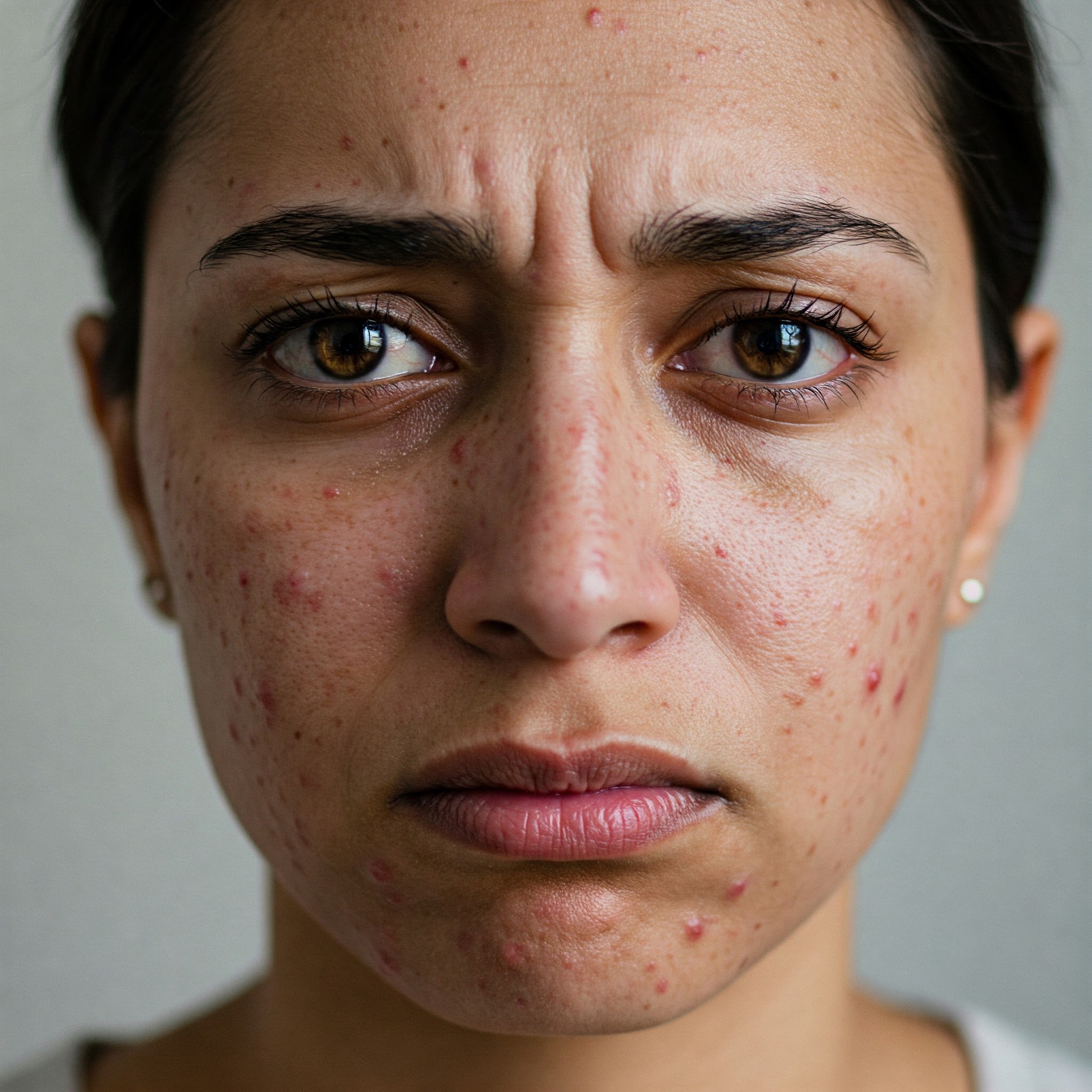
Can Stress Cause Acne? Understanding the Link
Acne is a complex skin condition influenced by various factors, including genetics, hormones, and skincare habits. But can stress also play a role in triggering or worsening breakouts? The answer is a resounding yes. Stress can indeed cause acne flare-ups, and understanding the connection between stress and acne is crucial for managing this common skin concern. This comprehensive guide explores the link between stress and acne, how stress hormones impact your skin, and effective strategies for managing stress-related breakouts.
The Stress-Acne Connection: How it Works
When you experience stress, your body releases hormones like cortisol and adrenaline. These hormones trigger a cascade of physiological responses, including:
- Increased Sebum Production: Stress hormones can stimulate sebaceous glands to produce more sebum (skin oil).
Excess sebum can clog pores, leading to acne breakouts. - Inflammation: Stress can trigger inflammation throughout the body, including the skin. Inflammation plays a significant role in acne development, contributing to redness, swelling, and the formation of blemishes.
- Delayed Healing: Stress can also impair the skin’s ability to heal, prolonging the duration of acne breakouts and increasing the risk of scarring.
- Gut Health Disruption: Stress can disrupt the gut microbiome, the community of microorganisms living in your gut. An imbalance in gut bacteria can contribute to inflammation throughout the body, including the skin, potentially worsening acne.
Signs That Stress Might Be Triggering Your Acne
While acne can have multiple causes, here are some signs that stress might be a contributing factor:
- Breakouts During Stressful Periods: Notice a correlation between stressful events or periods in your life and the appearance or worsening of acne breakouts.
- Acne Accompanied by Other Stress Symptoms: Experience other stress-related symptoms, such as anxiety, sleep disturbances, or digestive issues, alongside acne flare-ups.
- Acne That’s Resistant to Other Treatments: If your acne doesn’t respond to conventional treatments, stress could be an underlying factor.
How to Manage Stress-Related Acne
1. Stress Management Techniques
- Mindfulness and Meditation: Practice mindfulness techniques, such as meditation or deep breathing exercises, to reduce stress and promote relaxation.
- Exercise: Regular exercise helps reduce stress hormones, improve mood, and promote overall well-being.
- Yoga and Tai Chi: These practices combine physical activity with mindfulness, promoting relaxation and stress reduction.
- Adequate Sleep: Aim for 7-9 hours of quality sleep per night. Sleep deprivation can worsen stress and contribute to acne breakouts.
- Time Management: Effective time management can reduce stress by helping you prioritize tasks and avoid feeling overwhelmed.
- Social Support: Connect with friends, family, or a support group to share your experiences and receive emotional support.
2. Skincare for Stress-Related Acne
- Gentle Cleansing: Wash your face twice a day with a gentle, non-comedogenic cleanser. Avoid harsh scrubs or soaps that can irritate the skin and worsen acne.
- Exfoliation: Use a gentle exfoliant, such as salicylic acid or alpha-hydroxy acids (AHAs), once or twice a week to remove dead skin cells and unclog pores.
- Non-Comedogenic Moisturizer: Use an oil-free, non-comedogenic moisturizer to keep your skin hydrated without clogging pores.
- Spot Treatments: Apply spot treatments containing benzoyl peroxide or salicylic acid to target individual blemishes and reduce inflammation.
- Avoid Picking or Squeezing: Resist the urge to pick or squeeze blemishes, as this can worsen inflammation and lead to scarring.
- Sun Protection: Apply sunscreen with an SPF of 30 or higher daily, even on cloudy days, to protect your skin from sun damage, which can worsen acne.
3. Lifestyle Adjustments
- Healthy Diet: A balanced diet rich in fruits, vegetables, and whole grains can support overall health and may indirectly benefit skin health. Some studies suggest that limiting dairy and high-glycemic foods may also be beneficial for acne.
- Hydration: Drink plenty of water throughout the day to keep your skin hydrated and flush out toxins.
- Limit Alcohol and Caffeine: Excessive alcohol and caffeine consumption can worsen stress and potentially contribute to acne breakouts.
- Smoking Cessation: Smoking can worsen acne and impair skin healing. If you smoke, consider quitting.
4. Professional Help
- Dermatologist: If your acne is severe or doesn’t respond to home care, consult a dermatologist for personalized advice and treatment options.
- Therapist or Counselor: If you’re struggling to manage stress, consider seeking professional help from a therapist or counselor. They can provide support and teach you coping mechanisms.
Conclusion
Can stress cause acne flare-ups? Absolutely. Stress hormones can trigger a cascade of physiological responses that contribute to acne development, including increased sebum production, inflammation, and delayed healing. However, by implementing effective stress management techniques, practicing good skincare habits, and seeking professional help when needed, you can manage stress-related acne and achieve clearer, healthier skin.
Do you experience acne flare-ups during stressful periods? What strategies have you found helpful for managing stress-related acne? Share your experiences and tips in the comments below!
